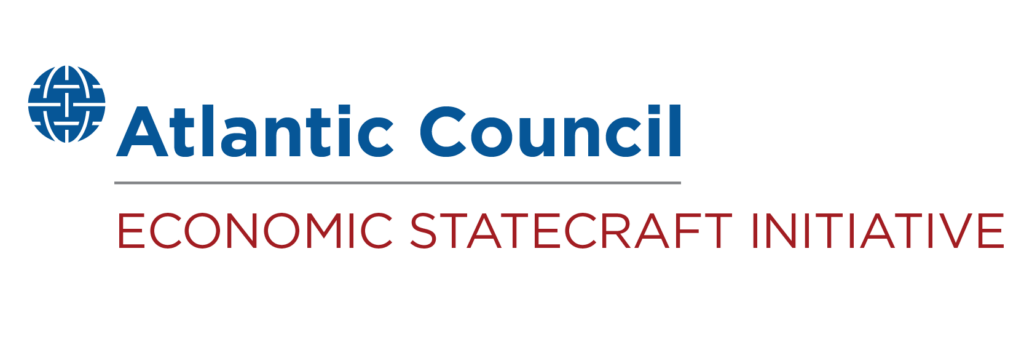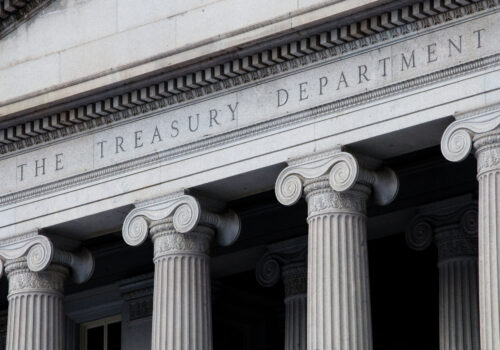Anonymous shell companies pose a threat to US national security. Here is how to address it.
On March 26, the Department of the Treasury scrapped critical federal rules that would have made most anonymous shell companies illegal. The rules would also have prevented them from being abused by drug cartels, human traffickers, foreign adversaries like Iran and China, terrorist groups, and other bad actors. Instead of strengthening the implementation of the Corporate Transparency Act (CTA), once backed by President Trump, the Treasury decided to exempt all domestic firms and domestic owners from its requirements. At least 99 percent of companies are excluded from reporting their owners, essentially allowing illicit actors to structure their business around the requirements.
By assenting to the continued abuse of corporate structures and short-circuiting the establishment of a database of the people who own and control real businesses operating in the United States—or “beneficial owners”—the Treasury has made the American financial system, and Americans, less safe. But that outcome wasn’t inevitable and is reversible.
The first Trump White House supported the CTA in a 2019 statement of administration policy, writing that the law “will help prevent malign actors from leveraging anonymity to exploit these entities for criminal gain… strengthening national security, supporting law enforcement, and clarifying regulatory requirements.” Other supporters included the US Chamber of Commerce, federal prosecutors, international human rights non-governmental organizations, financial institutions, police, sheriffs, faith-based groups, national security experts, and more than a hundred other organizations.
The persistent risk of anonymous shell corporations
Despite the passage of the CTA in 2020, anonymous shell companies remain a risk to the US financial system. Drug traffickers, terrorists, and nation state adversaries, including China, use our opaque corporate structure to harm Americans. In the CTA, Congress found that malign actors use US corporate law to facilitate “money laundering, the financing of terrorism, proliferation financing, serious tax fraud, human and drug trafficking, counterfeiting, piracy, securities fraud, financial fraud, and acts of foreign corruption, harming the national security interests of the United States and allies of the United States.”
High profile prosecutions demonstrate the roles that anonymous shells continue to play. For example, a Shanghai-based international drug trafficking organization used domestic Massachusetts shell companies as a US base for its operation to distribute fentanyl to customers across the country, resulting in multiple deaths before being shut down by the Department of Justice (DOJ) in 2018. Similarly, a February 2024 DOJ indictment revealed a scheme where a Chinese national used a US front company to launder Iranian oil into China, the proceeds of which funded Iran’s Islamic Revolutionary Guards Corps, a designated foreign terrorist organization in the United States.
The enduring danger that shady corporate structures present creates an imperative to act. It may also put Treasury Secretary Scott Bessent’s rollback strategy in legal peril, as long as the CTA is on the books. By statute, in order for a court to uphold the new rule, the rule must demonstrate that eliminating anonymous shell corporations: “(1) would not serve the public interest”; and “(2) would not be highly useful in national security, intelligence, and law enforcement agency efforts to detect, prevent, or prosecute money laundering, the financing of terrorism, proliferation finance, serious tax fraud, or other crimes.” The Treasury makes little attempt to achieve this impossible showing. Given this shaky legal foundation, the new rule is likely to end up in court.
Building a beneficial ownership system with less burden
If Secretary Bessent’s true objective is to ease the burden on small businesses and banks, a better way forward is to determine what went wrong in the first round of implementation and fix it, eliminating uncertainty, confusion, and unnecessary compliance burdens. Secretary Bessent has spoken fondly about how the new technology expertise at the Treasury can bring our “Blockbuster-style government in a Netflix world.” He should deploy it to ease the pain points of the first round of implementation.
For example, technology can significantly ease the compliance burden on companies who are required to report their beneficial ownership information. Reporting companies are the smallest of small businesses—by statute, only companies with fewer than 20 employees are required to report. These firms usually only interact with the federal government to file taxes. With time and resources, Treasury could collaborate with the Internal Revenue Service to allow small businesses to opt in to submitting their beneficial ownership information alongside their tax information.
Secretary Bessent could also rationalize the beneficial ownership and customer due diligence (CDD) systems, which already require financial institutions to collect beneficial ownership information from their customers. Initial implementation froze the status quo for banks and built an entirely separate—and barebones—beneficial ownership database at Treasury. There must be a better way where financial institutions and Treasury join forces to collect, maintain, validate, and deploy data jointly. They should share the costs so that the American people can enjoy the formidable national security and public safety benefits of securing our financial system against illicit actors. This could functionally reduce compliance burdens of banks without reducing the quality of information available to law enforcement.
As long as the CTA remains law, Treasury is obliged to accurately implement and enforce it. Perhaps more importantly as long as anonymous shell corporations endanger our national security and safety, the US government should mitigate the grave threat they present. Following the money remains one of the most potent tools we possess to solve crimes and protect our national security. We must not disarm.
Julie Brinn Siegel is a contributor at the Atlantic Council, former Deputy Chief of Staff at the US Department of the Treasury, and former Deputy Federal Chief Operating Officer.
Related content

Economic Statecraft Initiative
Housed within the GeoEconomics Center, the Economic Statecraft Initiative (ESI) publishes leading-edge research and analysis on sanctions and the use of economic power to achieve foreign policy objectives and protect national security interests.
Image: Technology icons transfer data through programming codes, artificial intelligence concept

